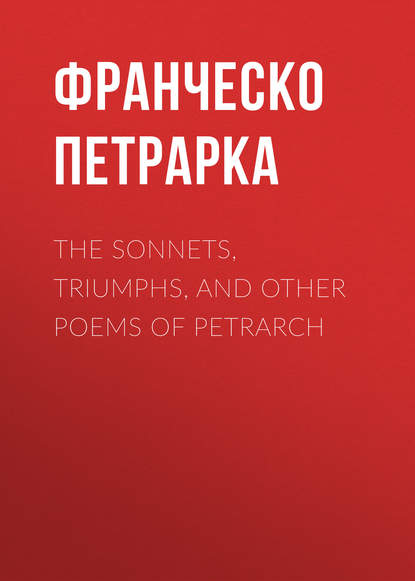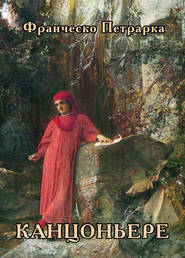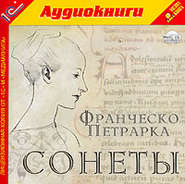По всем вопросам обращайтесь на: info@litportal.ru
(©) 2003-2025.
✖
The Sonnets, Triumphs, and Other Poems of Petrarch
Настройки чтения
Размер шрифта
Высота строк
Поля
—Judge then between us both, thou knowest him and me!"
With fierce reproach my adversary rose:
"Lady," he spoke, "the rebel to a close
Is heard at last, the truth
Receive from me which he has shrunk to tell:
Big words to bandy, specious lies to sell,
He plies right well the vile trade of his youth,
Freed from whose shame, to share
My easy pleasures, by my friendly care,
From each false passion which had work'd him ill,
Kept safe and pure, laments he, graceless, still
The sweet life he has gain'd?
And, blindly, thus his fortune dares he blame,
Who owes his very fame
To me, his genius who sublimed, sustain'd,
In the proud flight to which he, else, had dared not aim?
"Well knows he how, in history's every page,
The laurell'd chief, the monarch on his throne,
The poet and the sage,
Favourites of fortune, or for virtue known,
Were cursed by evil stars, in loves debased,
Soulless and vile, their hearts, their fame, to waste:
While I, for him alone,
From all the lovely ladies of the earth,
Chose one, so graced with beauty and with worth,
The eternal sun her equal ne'er beheld.
Such charm was in her life,
Such virtue in her speech with music rife,
Their wondrous power dispell'd
Each vain and vicious fancy from his heart,
—A foe I am indeed, if this a foeman's part!
"Such was my anger, these my hate and slights,
Than all which others could bestow more sweet;
Evil for good I meet,
If thus ingratitude my grace requites.
So high, upon my wings, he soar'd in fame,
To hear his song, fair dames and gentle knights
In throngs delighted came.
Among the gifted spirits of our time
His name conspicuous shines; in every clime
Admired, approved, his strains an echo find.
Such is he, but for me
A mere court flatterer who was doom'd to be,
Unmark'd amid his kind,
Till, in my school, exalted and made known
By her, who, of her sex, stood peerless and alone!
"If my great service more there need to tell,
I have so fenced and fortified him well,
That his pure mind on nought
Of gross or grovelling now can brook to dwell;
Modest and sensitive, in deed, word, thought,
Her captive from his youth, she so her fair
And virtuous image press'd
Upon his heart, it left its likeness there:
Whate'er his life has shown of good or great,
In aim or action, he from us possess'd.
Never was midnight dream
So full of error as to us his hate!
For Heaven's and man's esteem
If still he keep, the praise is due to us,
Whom in its thankless pride his blind rage censures thus!
"In fine, 'twas I, my past love to exceed,
Who heavenward fix'd his hope, who gave him wings
To fly from mortal things,
Which to eternal bliss the path impede;
With his own sense, that, seeing how in her
Virtues and charms so great and rare combined,
A holy pride might stir
And to the Great First Cause exalt his mind,
(In his own verse confess'd this truth we see,)
While that dear lady whom I sent to be
The grace, the guard, and guide
Of his vain life"—But here a heart-deep groan
I sudden gave, and cried,
"Yes! sent and snatch'd her from me." He replied,
"Not I, but Heaven above, which will'd her for its own!"
At length before that high tribunal each—
With anxious trembling I, while in his mien
Was conscious triumph seen—
With earnest prayer concluded thus his speech:
"Speak, noble lady! we thy judgment wait."
She then with equal air:
"It glads me to have heard your keen debate,
But in a cause so great,
More time and thought it needs just verdict to declare!"
Macgregor.
[OF PARTS ONLY]
I cited once t' appear before the noble queen,
That ought to guide each mortal life that in this world is seen,
That pleasant cruel foe that robbeth hearts of ease,
And now doth frown, and then doth fawn, and can both grieve and please;
With fierce reproach my adversary rose:
"Lady," he spoke, "the rebel to a close
Is heard at last, the truth
Receive from me which he has shrunk to tell:
Big words to bandy, specious lies to sell,
He plies right well the vile trade of his youth,
Freed from whose shame, to share
My easy pleasures, by my friendly care,
From each false passion which had work'd him ill,
Kept safe and pure, laments he, graceless, still
The sweet life he has gain'd?
And, blindly, thus his fortune dares he blame,
Who owes his very fame
To me, his genius who sublimed, sustain'd,
In the proud flight to which he, else, had dared not aim?
"Well knows he how, in history's every page,
The laurell'd chief, the monarch on his throne,
The poet and the sage,
Favourites of fortune, or for virtue known,
Were cursed by evil stars, in loves debased,
Soulless and vile, their hearts, their fame, to waste:
While I, for him alone,
From all the lovely ladies of the earth,
Chose one, so graced with beauty and with worth,
The eternal sun her equal ne'er beheld.
Such charm was in her life,
Such virtue in her speech with music rife,
Their wondrous power dispell'd
Each vain and vicious fancy from his heart,
—A foe I am indeed, if this a foeman's part!
"Such was my anger, these my hate and slights,
Than all which others could bestow more sweet;
Evil for good I meet,
If thus ingratitude my grace requites.
So high, upon my wings, he soar'd in fame,
To hear his song, fair dames and gentle knights
In throngs delighted came.
Among the gifted spirits of our time
His name conspicuous shines; in every clime
Admired, approved, his strains an echo find.
Such is he, but for me
A mere court flatterer who was doom'd to be,
Unmark'd amid his kind,
Till, in my school, exalted and made known
By her, who, of her sex, stood peerless and alone!
"If my great service more there need to tell,
I have so fenced and fortified him well,
That his pure mind on nought
Of gross or grovelling now can brook to dwell;
Modest and sensitive, in deed, word, thought,
Her captive from his youth, she so her fair
And virtuous image press'd
Upon his heart, it left its likeness there:
Whate'er his life has shown of good or great,
In aim or action, he from us possess'd.
Never was midnight dream
So full of error as to us his hate!
For Heaven's and man's esteem
If still he keep, the praise is due to us,
Whom in its thankless pride his blind rage censures thus!
"In fine, 'twas I, my past love to exceed,
Who heavenward fix'd his hope, who gave him wings
To fly from mortal things,
Which to eternal bliss the path impede;
With his own sense, that, seeing how in her
Virtues and charms so great and rare combined,
A holy pride might stir
And to the Great First Cause exalt his mind,
(In his own verse confess'd this truth we see,)
While that dear lady whom I sent to be
The grace, the guard, and guide
Of his vain life"—But here a heart-deep groan
I sudden gave, and cried,
"Yes! sent and snatch'd her from me." He replied,
"Not I, but Heaven above, which will'd her for its own!"
At length before that high tribunal each—
With anxious trembling I, while in his mien
Was conscious triumph seen—
With earnest prayer concluded thus his speech:
"Speak, noble lady! we thy judgment wait."
She then with equal air:
"It glads me to have heard your keen debate,
But in a cause so great,
More time and thought it needs just verdict to declare!"
Macgregor.
[OF PARTS ONLY]
I cited once t' appear before the noble queen,
That ought to guide each mortal life that in this world is seen,
That pleasant cruel foe that robbeth hearts of ease,
And now doth frown, and then doth fawn, and can both grieve and please;














